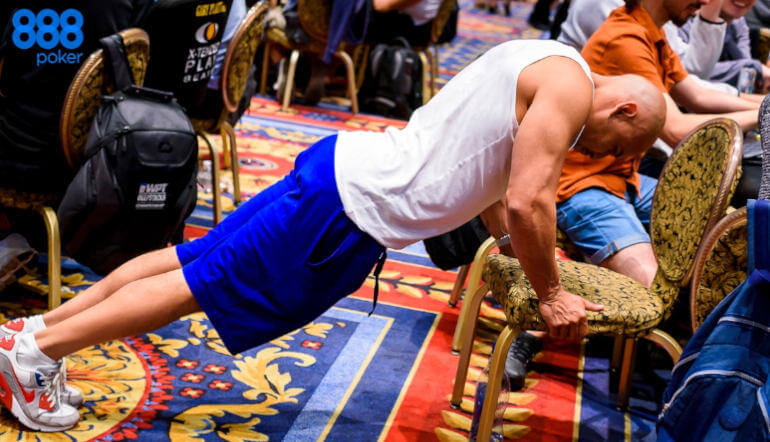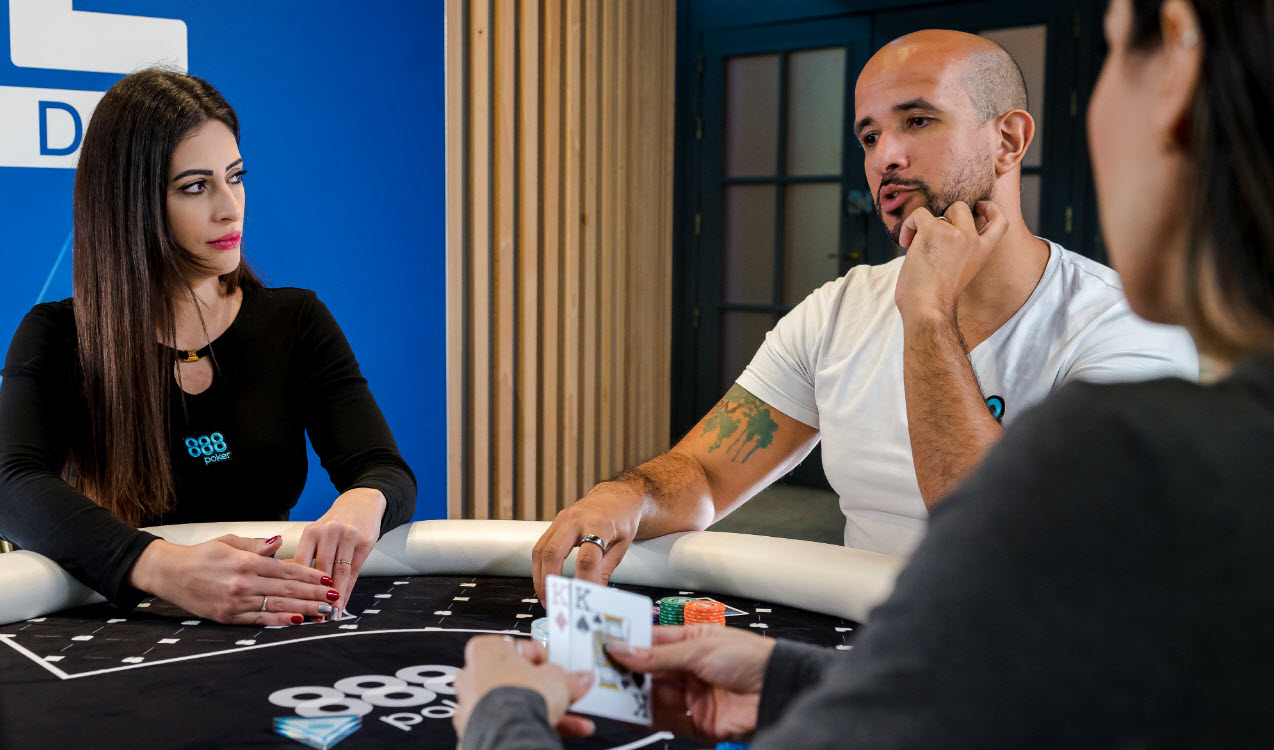Handling criticism and feedback is an essential skill for serious players. Whether you're a seasoned pro or just starting out, you'll inevitably face moments when your decisions and gameplay are put under the microscope.
Managing criticism well can make all the difference in your poker journey during these times. The best players can take in feedback and use it to enhance their poker games further. If you’d like to be able to do that too, here are several strategies designed to help.
1. Mindful Awareness: Taking a Moment to Reflect
Imagine this scenario: you're in the middle of a crucial hand that doesn't go your way. The criticism comes in fast and fierce from both opponents and spectators. In moments like these, it's easy to react defensively. However, the first step in handling criticism effectively is to practice mindful awareness.

Instead of immediately firing back or getting lost in a whirlwind of emotions, pause momentarily. I like to call this a “purposeful pause.” Take a beat to acknowledge the feelings that arise when you’re on the receiving end of criticism. It's normal to feel upset or defensive initially. Accept these emotions as part of the game. Take a deep breath (or two), then move on to the next tip.
2. Reframing Negative Thoughts: Finding the Silver Lining
Negative self-talk is a typical response to criticism. You might think, "I'm a terrible player" or “Why did I make such a stupid move!?”
I invite you to challenge those negative thoughts by asking yourself questions like:
- Is this criticism based on facts, or is it just an opinion?
- What specific aspects of my play are being criticized?
- Is there any validity to it?
- What can I learn from this feedback?
- Is there anything I need to change?
By reframing your thoughts this way, you can shift your perspective and view criticism as an opportunity for improvement rather than just a personal attack.
3. Separate Self-Worth from Performance: You Are More Than Your Game
One of the most challenging aspects of handling criticism in poker is separating your self-worth from your performance. Remember, your value as a person is not solely determined by your poker skills.

Your worth as a human being is inherent and not dependent on your poker results. By anchoring your self-esteem in your identity rather than your performance, you will become more resilient in the face of criticism. This crucial distinction helps reduce the emotional impact of criticism.
4. Seek Constructive Feedback: Embrace the Path to Improvement
Not all criticism is created equal. Some feedback is constructive, providing specific insights and suggestions for improvement.
To discern between constructive and destructive criticism, develop a critical ear. Evaluate the feedback you receive by its specificity and intention. Constructive feedback offers concrete advice and aims to help you become a better player. On the other hand, destructive criticism often lacks depth and serves no purpose other than to criticize.
Seek out mentors or experienced players who can provide valuable, constructive feedback. Engage in open and honest discussions about your gameplay. Encourage them to highlight areas where you can improve. Constructive feedback is a powerful tool for skill development.
5. Develop a Growth Mindset: Embrace Challenges
Carol Dweck is the leading researcher in this area. According to her, you have a growth mindset if you believe your abilities and intelligence can be developed through dedication and hard work. By contrast, a person with a fixed mindset believes that intelligence is fixed and cannot be changed. If you have a fixed mindset, you see yourself as either good at something or not.
A growth mindset encourages you to see criticism as a stepping stone to progress. Instead of viewing it as a setback, embrace it as a challenge. Every critique and every mistake is an opportunity for growth and mastery.

Adopting this mindset makes you more likely to persevere through challenges, including criticism. Rather than succumbing to doubt, you can embrace the feedback, work tirelessly to improve, and eventually become the dominant player in your games.
6. Stay Open to Learning: The Quest for Continuous Improvement
Embrace the idea that feedback can be a goldmine of knowledge, even if it stings in the moment. Every critique can help unlock your potential if you use it correctly.
In essence, staying open to learning isn't just a tactic; it's a way of life for serious poker players. It's recognizing that poker is a game that's constantly changing, and becoming a better player is a journey that involves continuous self-improvement.
So when you face criticism or setbacks, remember that your capacity to learn and adapt is your secret weapon. With every hand you play and every lesson you absorb, you're getting closer to becoming the poker player you want to be. So keep an open mind, keep learning, and (hopefully) increase your win rate!
7. Peer Support: Sharing the Journey
It’s essential to build a community of fellow poker players who understand the challenges you face. Having someone you trust to discuss criticism with can provide valuable insights and emotional support during difficult times. It is easier to develop and expand your game when you can rely on players to guide you.
Consider forming a study group or joining an online forum to make this happen. Just make sure the participants are high quality and equally motivated. Research has repeatedly shown that working with motivated peers accelerates improvement.
8. Practice Patience: The Long Game
Remember, poker is a long-term game and so is your improvement as a player. Be patient with yourself and your progress. Consistent effort over time is what yields results.
Avoid making hasty changes based solely on one piece of criticism. Resist the urge to make impulsive changes to your game. You want to use a well-thought-out improvement strategy. Trust the process and keep working toward your goals.
9. Conclusion: The Path to Peak Poker Performance
Handling criticism and feedback is an art that every serious poker player should master. By cultivating mindful awareness, reframing negative thoughts, and embracing a growth mindset, you can turn criticism into a valuable tool for improvement. With practice and the support of your poker community, you'll find yourself on the path to peak poker performance.
In the end, the accurate measure of a poker player's success lies in how they play the hands they are dealt and their ability to adapt, learn, and thrive – even in the face of criticism. So, the next time criticism comes your way, remember these principles, take a deep breath, and keep your eyes on the prize – peak poker performance.


